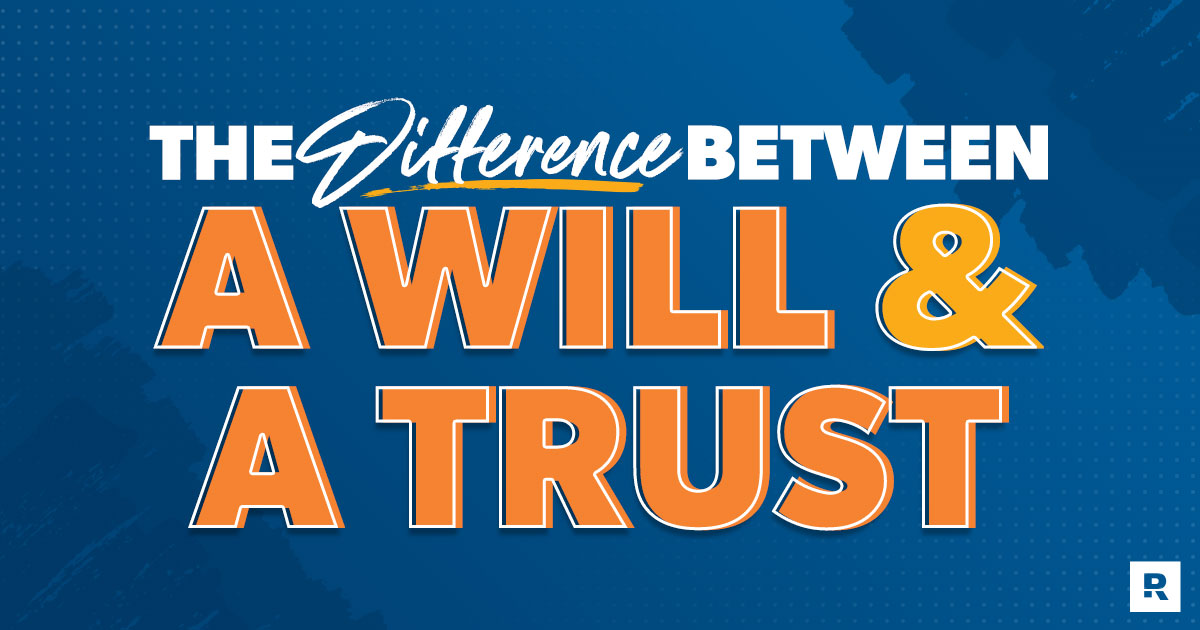
What Is an Online Will?
An online will is quicker, cost-effective alternative to an attorney-drafted will for folks with simple estates. But not all of them are created equal.
Still have questions? No problem! Besides the answers below, we’ve got a free guide to help you get clear about what you need.
The main difference between a will and a trust is that every adult needs a will, but not everyone needs a trust. Trusts go into effect while you’re still alive and wills take hold after you die.
One of the most important differences between wills and trusts is the ability to name a guardian for your minor children. You can name a legal guardian in your will, but you can’t in a trust. So, even if you have a trust, you still need a will to make sure your kids are taken care of after you die.
Another important distinction between the two is that, unlike a will, a trust lets you skip probate court. That’s a big perk because probate court cases can occasionally get expensive and drag on for a while. But if you have a will, probate should be a smooth process. The worst situation would be to die without a trust or a will—your family could end up in court for months or years trying to sort out your estate. Not fun.
But if your will is clear, your estate isn’t huge, and you don’t have a ton of debt, probate won’t be a huge hassle. And you probably don’t need a trust. If you want to dig into this stuff a little more, check out this article.
Nope—not if you’re like most people. Going to an attorney’s office to have a lawyer prepare your documents could cost you hundreds in legal fees (not to mention hundreds more whenever you need to make updates).
But here’s the thing: You don’t actually need to meet with a lawyer unless there’s something complicated about your situation (like you’re a millionaire with several properties). Chances are, you only need a simple will, which you can create and update online with attorney-built documents.
Notarization is when a public official, called a notary public, reviews and signs a legal document to confirm that it’s valid. Getting your will notarized helps your personal representative, the probate judge and your estate attorney (if you have one) know your will is the real deal.
Wills always have to be signed by two witnesses to be valid, and in most states, that’s good enough. No notary required. But getting your will notarized can speed up the probate process and make it easier for your personal representative to carry out the will after you pass away. So we recommend getting your will notarized to make life easier on your loved ones!
There are a whole lot of reasons why wills are a must-have for every adult. Let’s name some things a will lets you do:
If you die without a valid will, that’s called dying intestate. At that point your state’s laws control who inherits your property. State intestacy laws generally give property to the people most closely related to you—even if that’s not who you would have picked. And those same laws will decide who gets custody of your kids if you have them. Those decisions are too important to leave up to strangers.
If you want to learn more, this article dives deeper into what happens if you don’t have a will in place.
You bet it is! If you met with a lawyer to create your will, you would sit down with them to make all the necessary documents. This is a great way to go if you need it, but it tends to be much more expensive. And it doesn’t make sense to pay more if your estate isn’t complicated.
The difference with Mama Bear Legal Forms is that their attorneys create state-specific legal documents for you on the front end. You just fill out your will online, print it, sign it, and get it notarized with two witnesses—and you’re good to go!
If you have any assets (car, condo, etc.), those items will be used to pay off any debt you have, like student loans. To learn more about what happens to your debt when you die (like what happens if you have more debt than assets), we’ve got an article that’ll walk you through the details.
And listen, if you’re at least 18 years old, you need a will—whether you have debt or not. Having a legal last will and testament can save your loved ones from a huge headache later.
Yes! Your spouse absolutely does need a will! There’s nothing worse than having to deal with legal issues on top of something as hard as your spouse dying. But when it comes to wills for couples, you’ve got a few options.
The smartest solution is for your spouse to have a mirror will. It’s almost like a duplicate of your own will, but with their name on it instead of yours. Having mirror wills lets you and your spouse spell out what happens if one of you die or if you both die at the same time. Plus, you’ll save money because you usually get a discount on the second document.
A mirror will is not an exact copy of your own will. To learn more about how they work together, read this article.
We’ve got a handful of helpful terms to point you in the right direction:
Short answer: Yes! It’s true that picking guardians for children is part of making a will. But it’s just one part. Do you have pets? Special items you want to go to your loved ones? And if you have a spouse—what happens if you both die at the same time? You need to spell this stuff out in your will to save your family from a headache later. Plus, everyone needs to have powers of attorney in place, and picking them is usually part of the will-making process.
Planning for kids down the road? Great! If you make your will now—it’s that much easier to update later.
The point of having a will is to make a plan for what happens to your kids and your pets and your stuff if you pass away. It’s a smart move for every adult because someone is going to end up having to deal with your estate. And you should be the one who decides what happens to the things that matter most to you—not the court.
If you’re single without kids and you die without making a will, your parents will likely inherit your entire estate. If you have any assets (car, condo, etc.), those items will be used to pay off any debt you have, like student loans.
If one of your parents has already passed away, your stuff will be divided among the surviving parent and any siblings—even if you don’t have a great relationship with any of them. And if you have a pet, your immediate family will decide what happens to it.
Absolutely! This thing isn’t set in stone. Nothing is permanent until you’ve passed away. You can add or remove things at any time while you’re still alive.
If you got a will through Mama Bear Legal Forms—it’s easy! You can log back in through the link they sent to the email you signed up with. If you don’t see the email in your inbox, spam or promotional folders—don’t panic! Just reach out to Mama Bear's team through the contact info below and they’ll be happy to help.
Phone: 888.441.9455
Email: customercare@mamabearlegalforms.com
And don’t forget to make updates anytime your wishes change or after some kind of life event. This can include when:
First, here’s a quick breakdown of some different types of wills:
Is there a one-size-fits-all option? Well, it depends on factors like how much money you have, whether you own a business, and if you have property that’s stayed in your family for multiple generations. But most people just need a simple will (including a mirror will if married).
You can check out this article if you want to dig into more details of each type of will.
After you create your will, there are a few different steps you can take:
Probate is the legal process that takes place after someone dies. It makes sure property and possessions get to the right people, and any taxes or debts owed are paid in full. It can be a long and complicated process, so save your family a headache by getting your legal will in place.
A testamentary trust is a legal tool you set up in your will that goes into effect after you pass away. It helps manage how certain assets—like money or property—are given to your loved ones.
It’s especially helpful if you’re leaving money to kids or someone who isn’t ready to handle a large inheritance. A testamentary trust lets you decide how much your beneficiary receives, when they receive it, and who manages it.
For example: Let’s say your 10-year-old child is your beneficiary. You could set up a testamentary trust that gives them access to the funds when they turn 21—and name a trusted family member or friend to manage the money until then.

Can you write your attorney-built will and get it notarized yourself? Or do you need to meet with a lawyer in person? Let's find out!
Find out if an online will works for you in less than 5 minutes.

An online will is quicker, cost-effective alternative to an attorney-drafted will for folks with simple estates. But not all of them are created equal.

Know you need a will, but just have a few more questions? I got you! I’ll answer all your will questions right here so you can move forward and get a will!

Do you need a will or a living trust? Find out the differences and what that means for your estate plan.